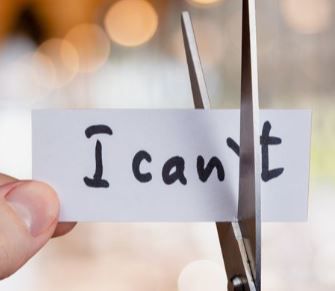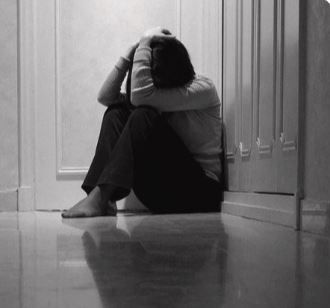Healthy relationships are built on foundations like trust, open communication, and the bravery to let one’s guard down. Yet, for many Nigerians, Ghanaians, and indeed people across West Africa, there’s a quiet threat that often goes unnoticed: self-sabotage. Sometimes our own doubts, fears, and unresolved past experiences quietly undermine years of hard work, turning love and companionship into constant struggle—even when we deeply desire harmony.

Worried you might be making your own romantic journey more difficult? You’re not alone. In this article, we break down six signs that self-sabotage might be affecting your relationship, and provide practical advice relevant to our unique cultural context in Nigeria, Ghana, and beyond.
1. Dwelling on Doubt: The Trap of Overthinking
Does your mind replay every word, WhatsApp message, or even the smallest gesture? In Lagos and Accra, stories of friends “reading meaning” into innocent acts or harmless jokes are all too familiar. Overanalyzing your partner’s actions often leads to stress and can breed distrust where none should exist. Instead of letting suspicion build, make a habit of honest, face-to-face conversations. As Abuja-based therapist Amarachi Obi notes, “Voicing your concerns is healthier than letting your imagination take the wheel.”
2. Struggling with Trust: Old Wounds, New Problems
Are you quick to suspect your partner, even when there’s no solid reason? For many, past betrayals or heartbreaks cast a long shadow over new love. This is especially true in busy urban centers where rumours travel fast and privacy can be scarce. However, projecting insecurities onto a new relationship often pushes supportive partners further away. Trust, experts say, is earned over time but starts with a willingness to confront our own emotional baggage.
3. Hiding Your True Self: The Danger in Avoiding Vulnerability
In many African cultures, showing emotion can be seen as a weakness—especially for men. However, true intimacy only blossoms when both people are honest about how they feel, what they fear, and what brings them joy. If you find yourself bottling up thoughts or avoiding difficult conversations, consider this: Vulnerability is actually a strength. “When one partner opens up, it often encourages the other to do the same,” shares Kofi Mensah, a Ghanaian couples’ counselor.
4. Searching for the ‘Perfect’ Partner: Unrealistic Expectations
Do you wish your partner looked, acted, or earned more than they currently do? Social media and Nollywood romances can fuel unrealistic expectations. But holding your loved one to impossible standards only guarantees disappointment. Each person is a unique blend of strengths and flaws. Embracing imperfections—and appreciating genuine effort—helps build lasting respect and contentment in relationships.
5. Escalating Small Arguments: When Minor Issues Become Major Battles
Do little misunderstandings or late replies spark major quarrels in your home? Sometimes, picking fights becomes a testing ground for love. But frequent conflict can turn peaceful households into battlegrounds, making both parties resentful. Before letting emotions run high, pause and examine what’s truly behind your reaction. Are you responding to a real issue or allowing hidden fears to drive your actions?
6. Keeping Your Distance: The Subtle Ways We Push Loved Ones Away
Some signs of self-sabotage aren’t loud or dramatic. They show up in quiet withdrawals—missing important calls, declining invites and making excuses for emotional or physical distance. You may believe you’re protecting yourself from future hurt, but closing off shuts out not just pain, but also love and opportunity. Building closeness takes courage and a willingness to try, even when past experiences make us cautious.
How to Break the Cycle of Relationship Self-Sabotage
Why do these patterns repeat? In Nigerian and West African societies, many were raised to keep challenges “within the family” or “not wash dirty linen in public,” making it difficult to seek help for relationship struggles. But healing begins with self-awareness. Take time to reflect on what triggers your actions and whether they are rooted in past experiences or valid concerns about your current relationship. Social worker Yetunde Ajayi advises, “Naming the problem is the first step towards change.”

For some couples, seeking the guidance of a therapist, religious leader, or trusted elder can be transformative. In fact, there’s growing acceptance of both modern counseling and faith-based mediation in Nollywood storylines and real life. For others, open and regular communication—turning off distractions, listening with empathy, and setting shared goals—helps rebuild trust. Remember, your partner might already sense your fears, and involving them in your healing journey can provide surprising comfort and support.
Practical Tips for Nigerian & West African Couples
- Prioritise honest dialogue: Set aside time, even if it’s weekly, to discuss feelings, dreams, and challenges—free from judgement.
- Challenge your assumptions: Before reacting, ask yourself: “Is this based on facts or past pain?”
- Celebrate small wins: Express gratitude for what your partner does well, rather than focusing only on mistakes.
- Get support when needed: Don’t hesitate to reach out to a mental health professional or support group if patterns seem too hard to break alone.
Relationship self-sabotage is not unique to any culture or age group. It’s a common human challenge, especially in societies under pressure from economic shifts, social expectations, or even global influences. But recognising the patterns and taking small, practical steps can lead to meaningful change.
The Road to Stronger, More Fulfilling Relationships
No partnership is ever perfect—nor should it be. What matters is the mutual commitment to grow, learn, and support each other through ups and downs. By identifying and addressing self-sabotaging habits, you open clearer paths to love, happiness, and emotional security.
Is self-sabotage a topic you’ve experienced or witnessed among your friends and family? What practical advice or wisdom can you share from your own journey? Relationships thrive on shared experiences, so your voice might inspire someone else to take that all-important step towards healing and happiness.
Let’s hear your thoughts! Do you recognise any self-sabotaging patterns in yourself or your relationship? Share your experiences or tips in the comments, and join the conversation on how we can build stronger, healthier connections in Nigeria and across Africa.
Have a story you want to share or sell—on relationships, lifestyle, or anything making waves? Reach out to us at story@nowahalazone.com for story submissions and features.
For general support, partnership, or questions, contact support@nowahalazone.com.
Stay connected—join our growing community for daily updates, discussions, and more! Follow us on Facebook, X (Twitter), and Instagram.










